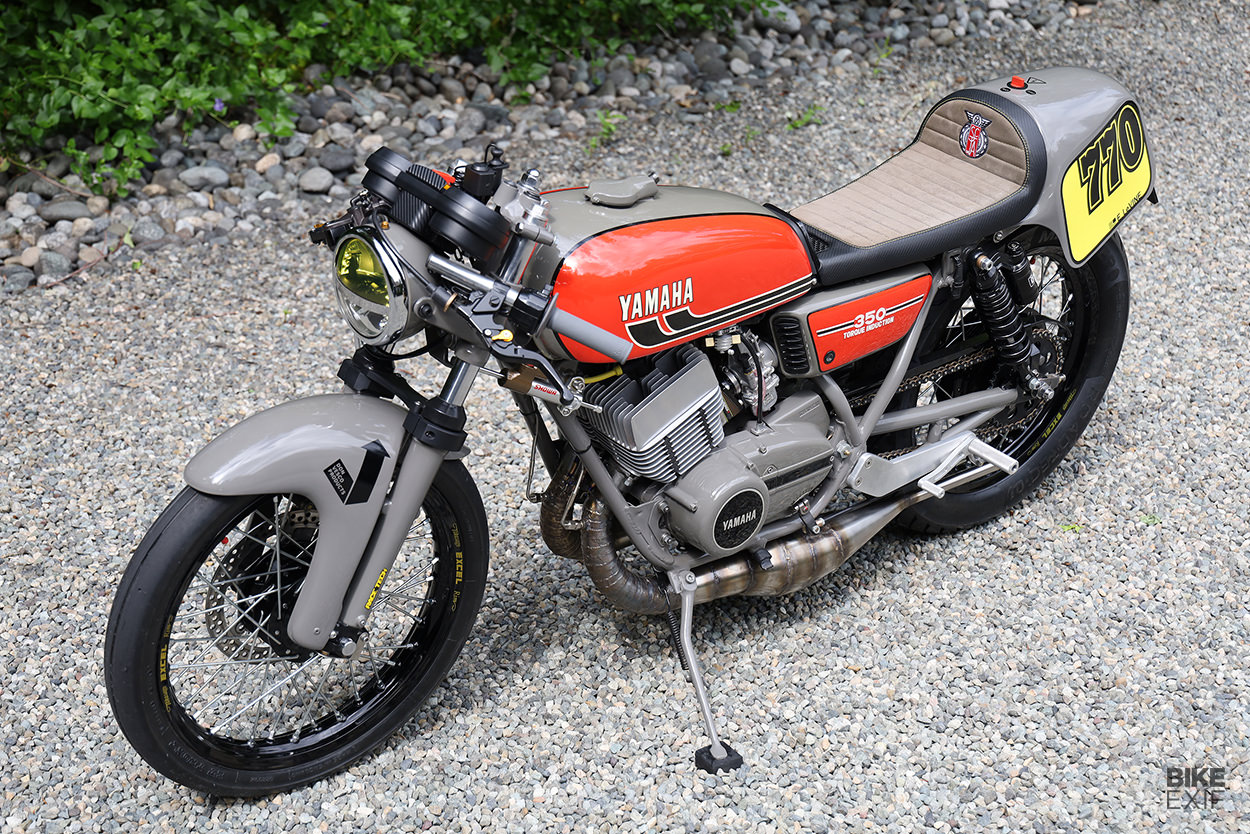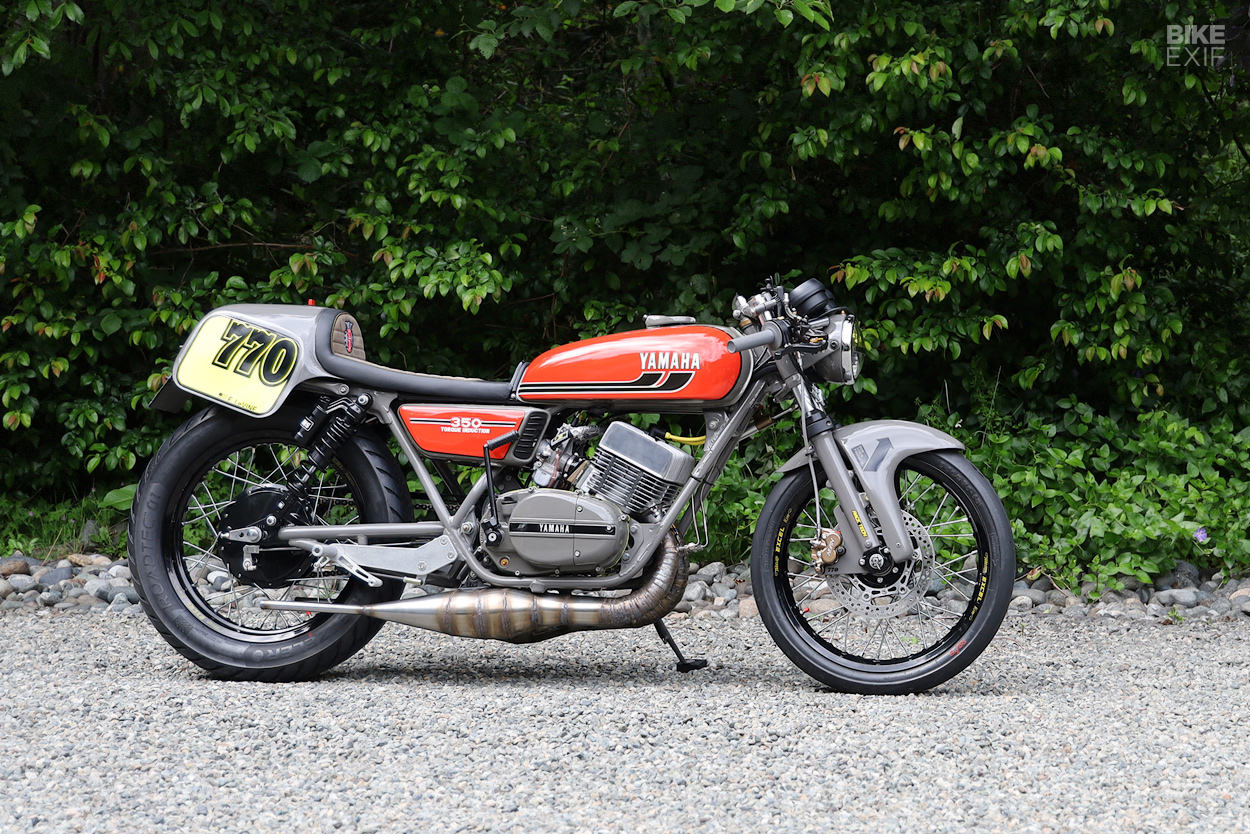
This brutal-looking Yamaha RD350 is nearly fifty years old, but when the lights turn green, not much will be able to keep up. It might not be pretty, but it’s pretty fast.
Built by land speed record holder Eric LeVine, it’s a street legal (just add mirrors) race bike. Designed to run in the Bonneville Motorcycle Speed Trials, it weighs just 281 pounds [128 kg].
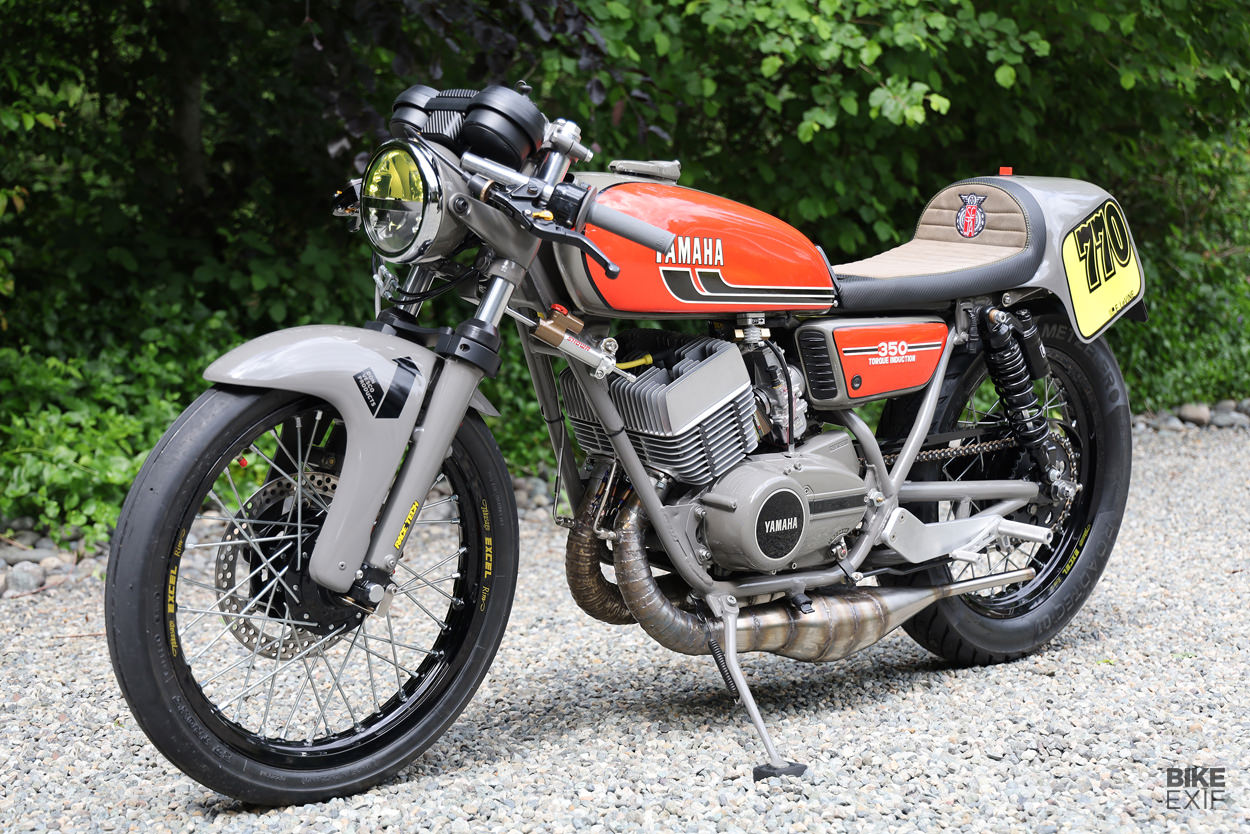
Eric hails from Bainbridge Island, a town in western Washington State that’s just a ferry ride away from Seattle. He’s a principal for an architecture firm in Seattle called NBBJ, and builds one-off customs as a different kind of creative outlet.
It’s a productive outlet for him: he still holds a 350cc speed record he set in 1993, with an RZ350 at El Mirage Dry Lake in California. He clocked 146.7 mph—a stunning 236 kph.
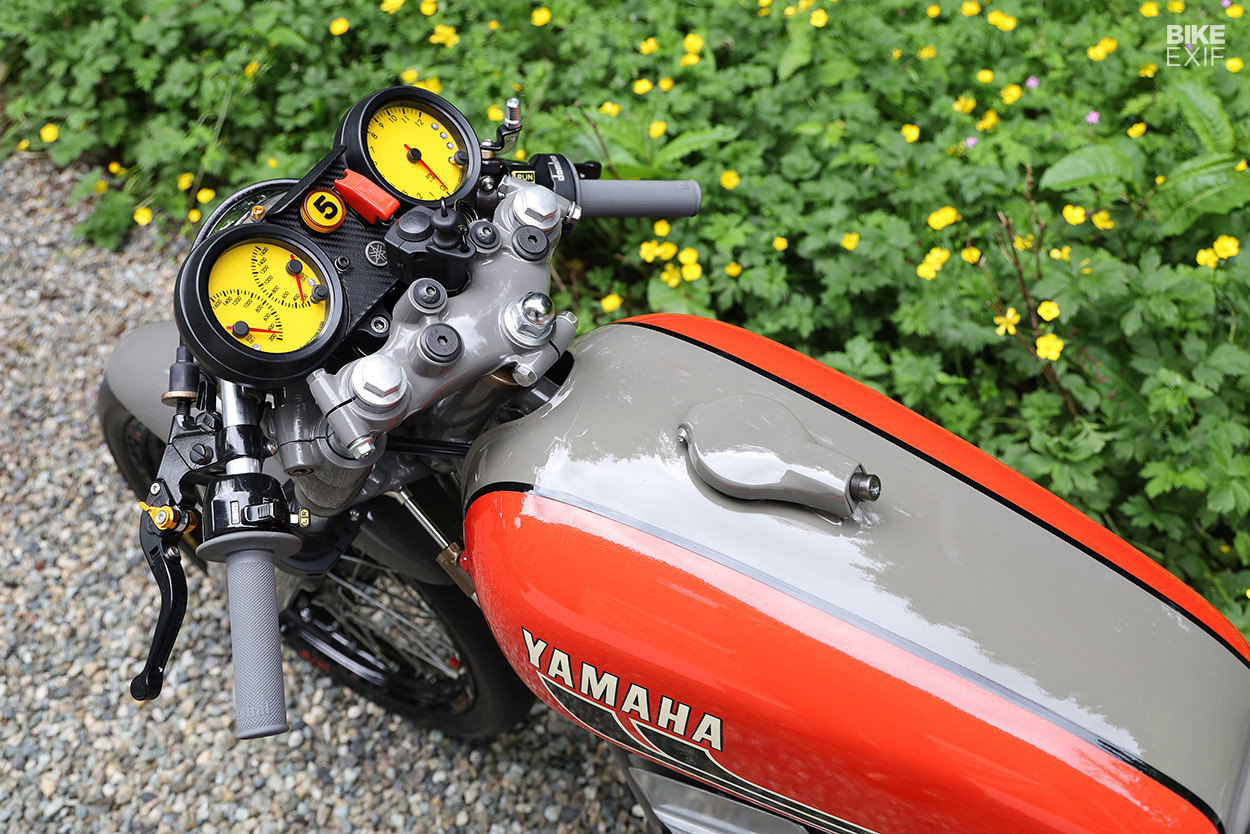
This RD350 was in good condition when Eric got it. “It was also complete,” he reports. “It was actually a purple 1974 model, but the new paint scheme is based on the 1975 Yamaha factory orange scheme.”
Eric has replaced, rebuilt, and/or modified all the mechanical parts, but the frame is essentially stock—except for the slightly lengthened and underbraced swing arm.
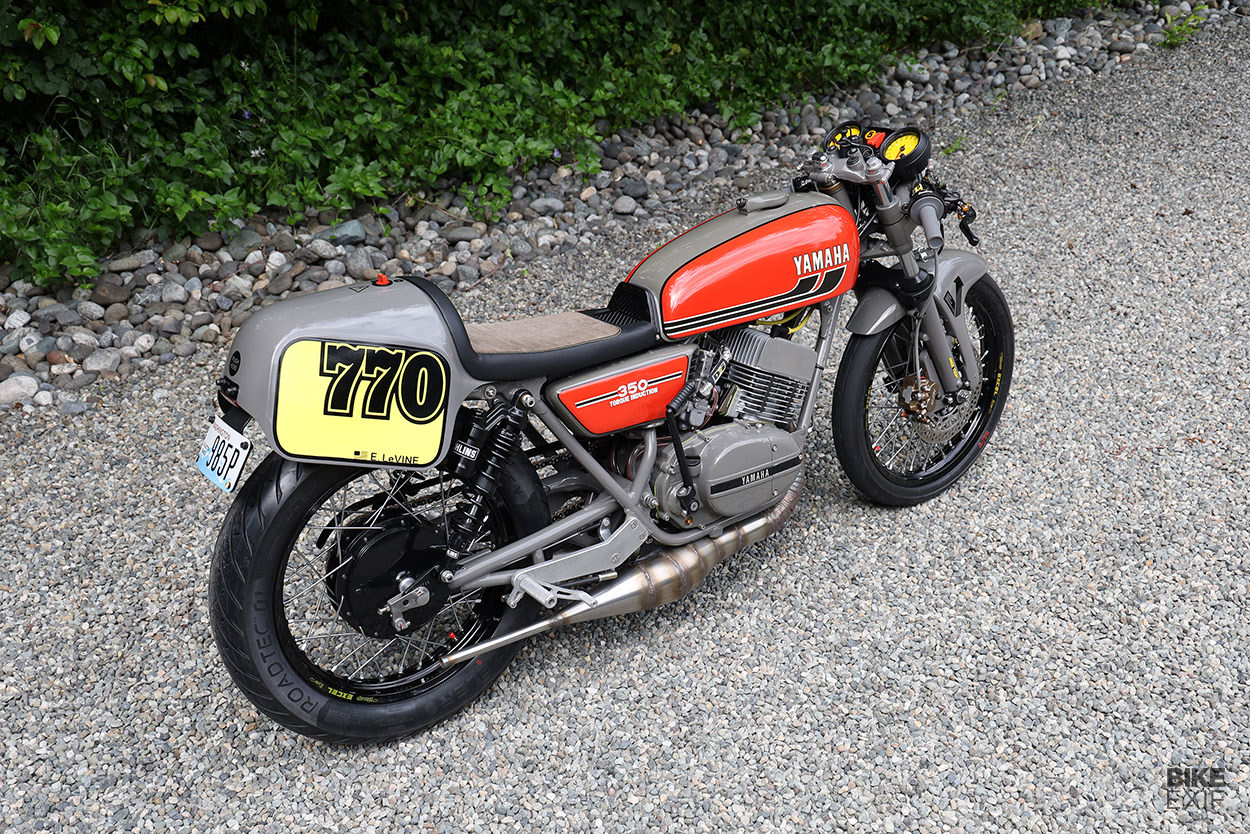
It’s all in compliance with the rules for the Modified Production class and the RD350 has turn signals and a horn. It just needs mirrors to be street legal in Washington State.
“The motor modifications are typical for competition,” says Eric. “Porting, port matching, and head squish reshaping. Ignition is a Powerdynamo Vape unit, and induction comes via Mikuni TM flatslides and VForce reeds.”
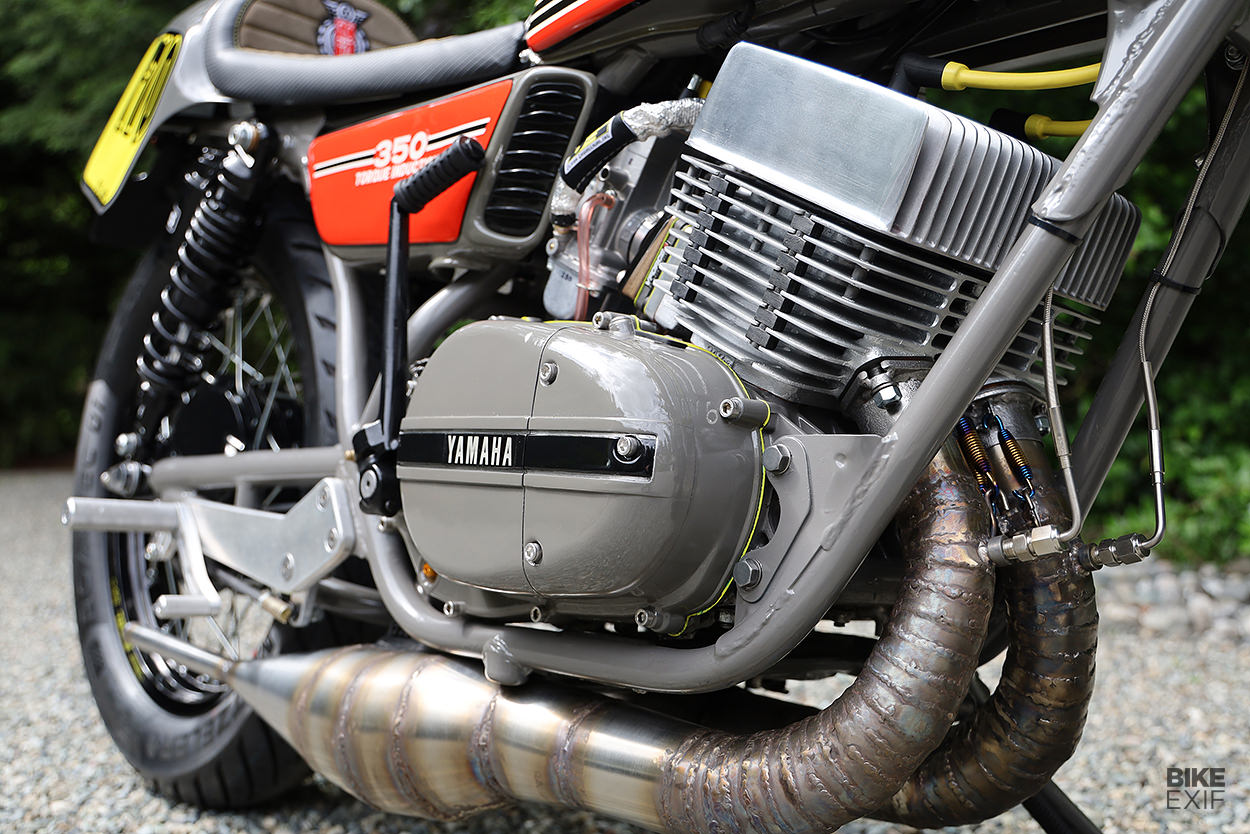
Eric did all the work on the two-stroke engine himself, except for the combustion chambers, which were machined by a local specialist.
The stainless steel expansion chambers were scratch-built by Eric according to specifications from Yamaha racing legend Don Vesco, and he’s made up slip-on silencers too … for street use only.
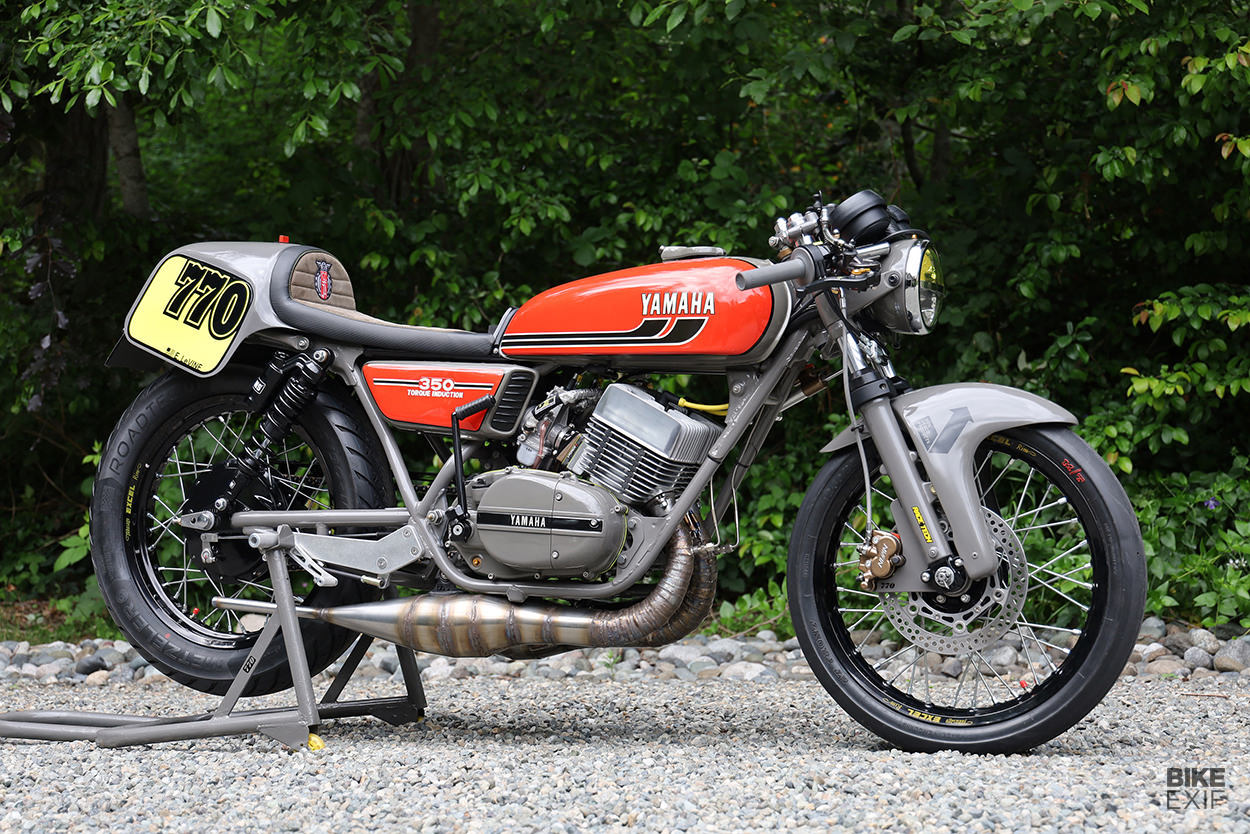
Eric has shortened the original forks, and brought them up to scratch with Race Tech mods and springs to avoid any speed wobbles. Excel Takasago wheels are laced with heavy nickel spokes, and the front brake is from a YZ125.
The front tire is a Mickey Thompson ET Ultra Light Front Runner, with custom grooving, partially encased with a streamlined Airtech fender. A Metzeler ROADTEC gets the power down at the back, helped by shocks from a Sportster project that never happened. “Luckily, they are the length and spring rate that work well for this RD chassis,” says Eric.
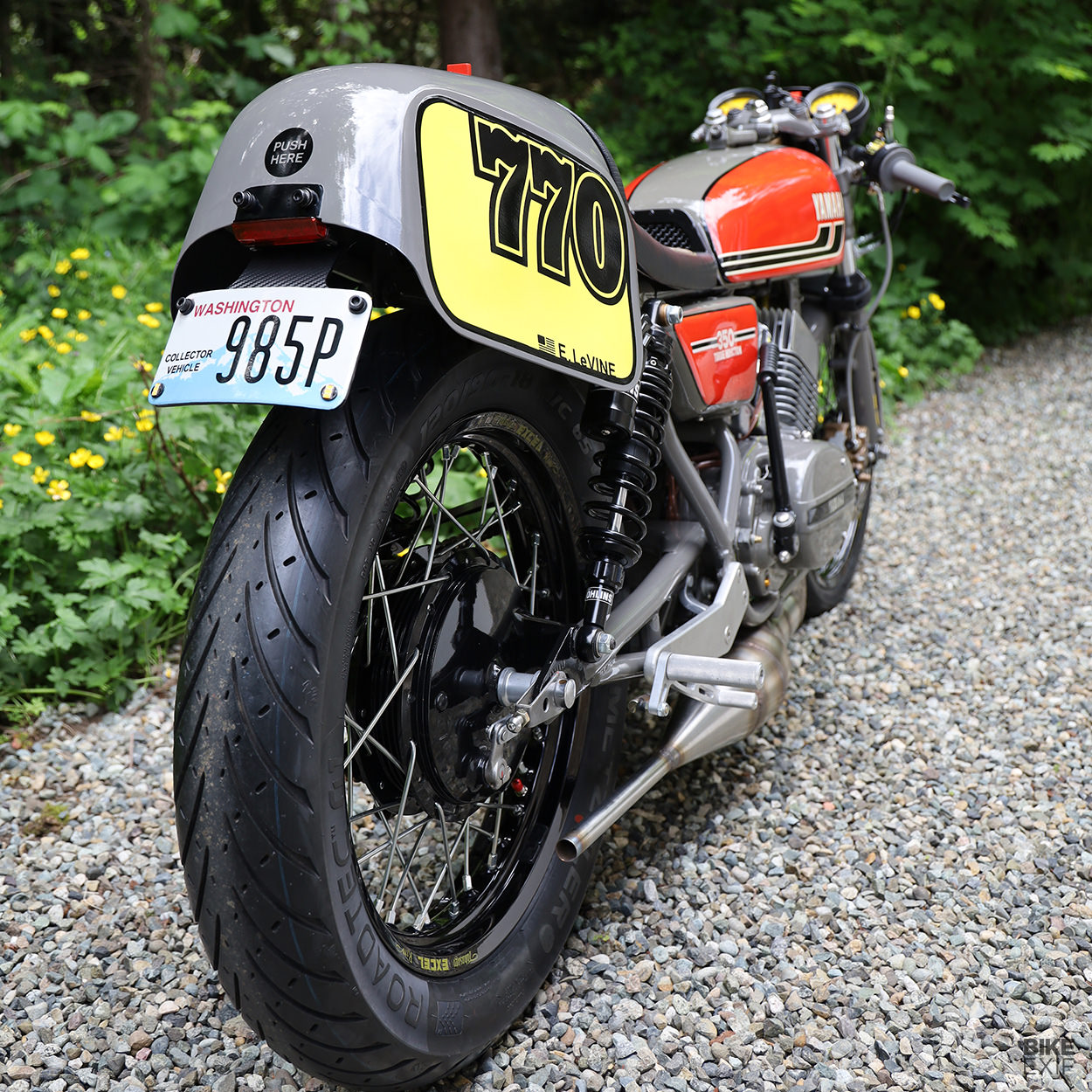
Right behind is a beefy replica Ducati tail section from Airtech with a battery cut-off switch on top. Hidden under the fiberglass are the electrical tray, a battery, a good part of the new wiring loom, and even a couple of spare NGK spark plugs.
The seat was handled by Mac’s Upholstery in Seattle, and they added the Southern California Timing Association emblem too. “This is the organization that operates the land speed record meets at El Mirage Dry Lakes in the Mojave desert,” Eric reminds us. “I’m originally from Southern California, and ran bikes in speed trials at both El Mirage and the Bonneville Salt flats in the 90s.”
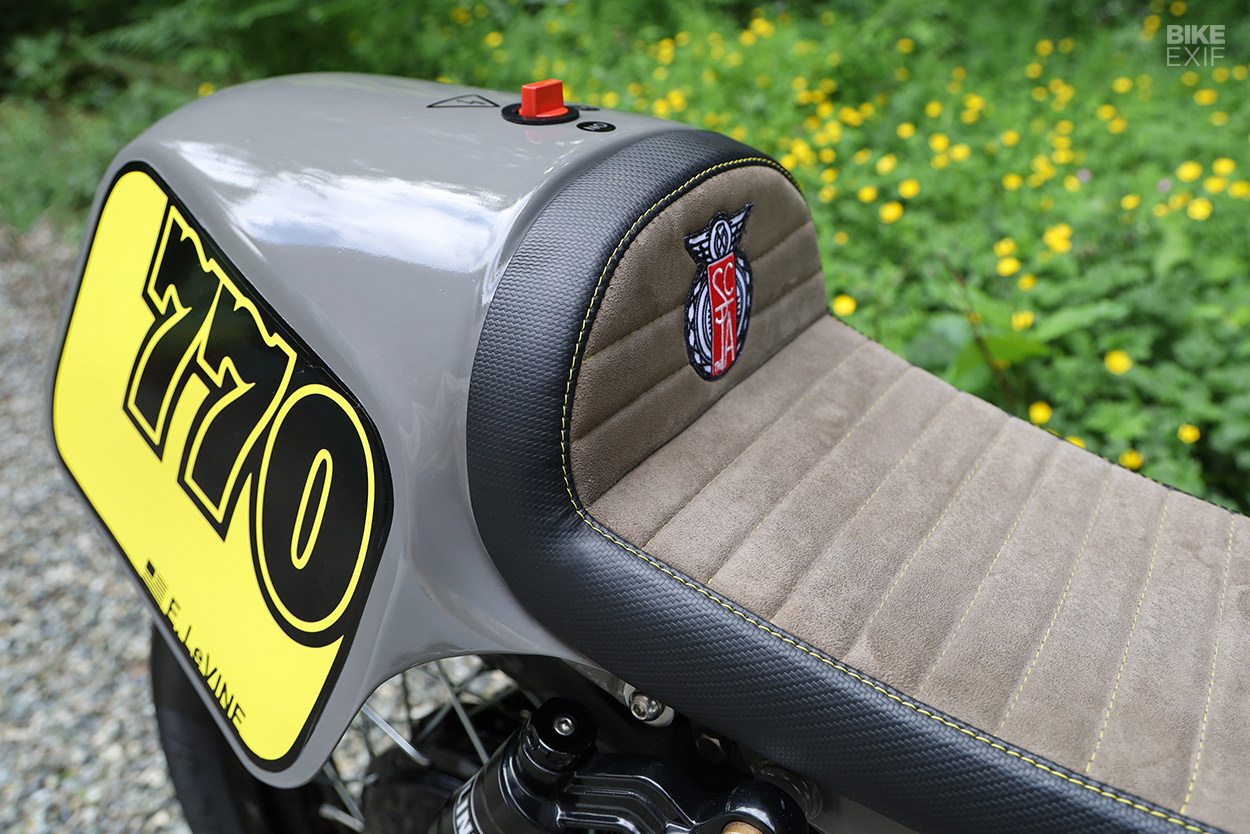
The side covers are stock, but slightly modified to accommodate a custom-fabricated, oversize air box. Eric did the paint for all the bodywork himself, in his home workshop, using ColorRite products. The ‘770’ number has meaning: it was the number assigned to the bike that carried him to his first land speed record.
The cockpit is strictly functional, with a pair of Speed Hut gauges essentials for high-speed runs: a dual exhaust gas temperature gauge on the left, and a 12,000 rpm tachometer on the right.
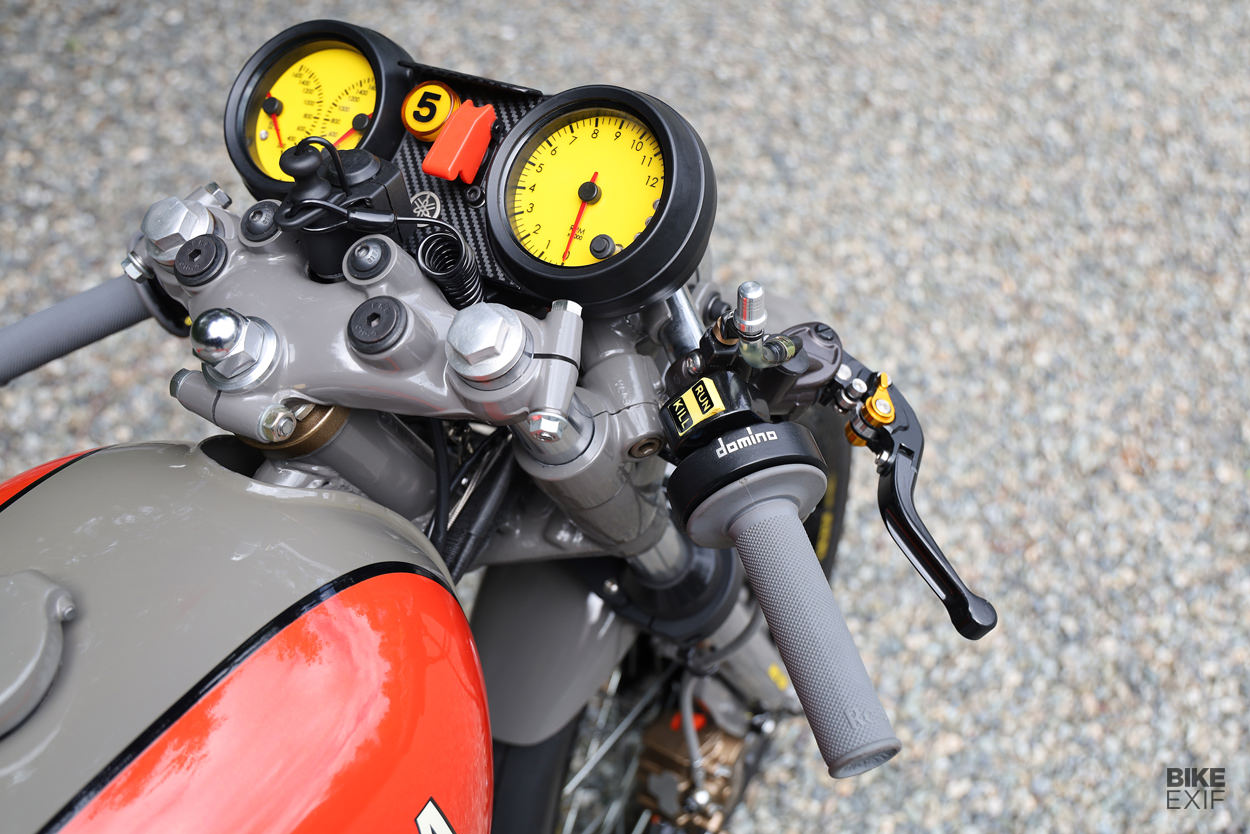
Eric plans to run his RD350 in the Modified Production pre-1981 Classic class at the Bonneville Salt Flats in September this year, but there’s still work to be done. “The bike has only been test-ridden on city streets and checked over,” he says. “I’m in the process of taking off the top end of the motor, to re-machine the heads and try some different pistons.”
Hit up Eric’s Flickr gallery below to see the build process in detail. If you’re mechanically minded, it’s a fascinating insight into the making of a potential land speed record holder.
